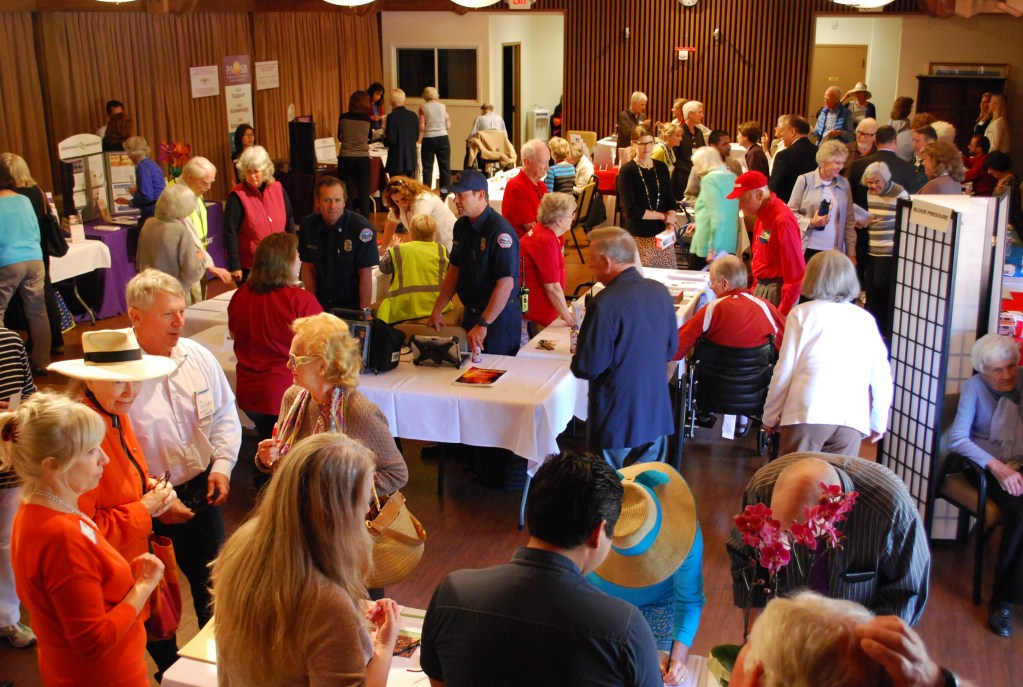Any public cough or sneeze raises the shadow of coronavirus as the disease reaches the status of a common meme as well as a pandemic. Seriously concerned, however, are elder-care facilities. Even one that is simply on the cusp of opening — The Gardens on Hope — postponed its celebratory ribbon-cutting to protect its residents-to-be. “This complex is dedicated to housing 90 frail and low-income seniors, a population that has been the most vulnerable to the coronavirus,” wrote Rob Fredericks on Wednesday. He and his city Housing Authority staff decided to err on the side of caution and hold the opening after the threat has ebbed.
The precautions taken at senior homes are the universal ones frequently quoted these days. Hand-sanitizer stations are ubiquitous — bottles of gel that are at least 60 percent alcohol — as are elbow bumps in place of the handshake, and reminders to wash hands well and frequently. And the most difficult? “As soon as you say, ‘Don’t touch your face,’ you have an itch on the end of your nose,” said Brian McCague, director of Montecito’s Casa Dorinda.
One of the most proactive is Samarkand, whose parent company, Covenant Living, has 17 facilities nationwide, including one on heavily impacted Washington state’s Mercer Island. Samarkand has posted a statement on its coronavirus actions at its website: Like other senior homes, Samarkand is following state and local officials’ lead, as well as the Centers for Disease Control and Prevention safety protocols. Staff are aware of the need to remain home if they’re sick, and any resident who is coughing or sneezing is asked to stay in their apartment.
Visitors normally are welcome and come daily to nursing homes, but during the coronavirus epidemic, many places have limited access, “especially to the assisted living and skilled nursing center,” said Casa Dorinda’s Brian McCague. As in the younger general population, those with a chronic medical condition like heart or lung disease makes them especially vulnerable to a lethal case of COVID-19.
As the disease grows among the greater population, shown by the evident community spread in areas like Washington state and acknowledgement by doctors that it has been in the U.S. for many weeks, Casa Dorinda decided recently to cancel events that would bring more than 20 people together in one spot. It’s also considering eliminating daily buffet meals, and instead bring plates to tables, to minimize the sharing of serving utensils and the buffet line. “If there were confirmed cases in Santa Barbara County, we would make even more aggressive steps,” McCague said.
At Wood Glen Hall, the arrival of cruise ships was a top coronavirus issue. “I remember 35 years ago when two cruise ships arrived a year,” said Joan Sherman, director of the facility. “Everybody would go to see the boat! But we’ve been pretty proactive emailing the mayor and council, saying, ‘Please don’t let these cruise ships come in.’” With most of her residents in their nineties, Sherman said she “really didn’t want to have coronavirus happen here.”
Maravilla has managed to find a silver lining to the COVID-19 cloud. Brittaney Heinrich, who directs health and quality services at the large Goleta residential community, said they teach technology in daily living for seniors. With the necessity to screen visitors and ask those with even a cold to stay away, said Heinrich, “We’ve helped the residents set up Facetime and Skype, and they’re able to stay connected with their loved ones.”
Dr. Nancy Messonnier, who heads infectious disease for the Centers of Disease Control, often brings her family into the conversation during her briefings with reporters. On Monday, she mentioned she’d been talking with her parents, who are over the age of 80, on what to do. Family, friends, and neighbors can help the vulnerable and elderly, she said, by making sure they have enough medications — like for diabetes or high blood pressure — should a community-wide quarantine become necessary. And buying groceries or otherwise preventing them from having to go out into crowded stores is another kindness to consider.
Ultimately, Dr. Messonnier said, “a large measure of personal responsibility” was needed from all members of the public for the U.S. to weather the coronavirus storm.

